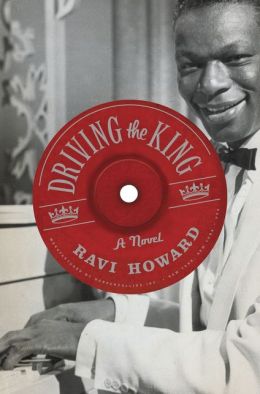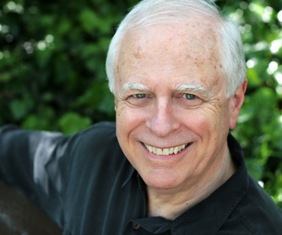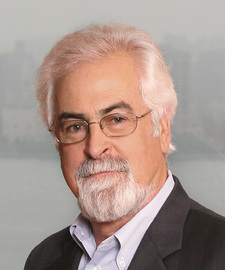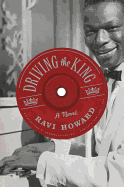 Smooth and easy, Nat King Cole's baritone voice captivated listeners of all races when he began performing at jazz clubs as a teenager in the 1930s. By the mid-1950s, Cole was a star, and though he was living in Los Angeles, he returned to his home state of Alabama to play a sold-out concert in a segregated Birmingham theater. During the show, Cole was assaulted on stage by three white men. In his second novel, Driving the King, Ravi Howard uses that incident as inspiration, setting it in Cole's hometown of Montgomery and imagining what might have happened afterwards.
Smooth and easy, Nat King Cole's baritone voice captivated listeners of all races when he began performing at jazz clubs as a teenager in the 1930s. By the mid-1950s, Cole was a star, and though he was living in Los Angeles, he returned to his home state of Alabama to play a sold-out concert in a segregated Birmingham theater. During the show, Cole was assaulted on stage by three white men. In his second novel, Driving the King, Ravi Howard uses that incident as inspiration, setting it in Cole's hometown of Montgomery and imagining what might have happened afterwards.
Howard (Like Trees, Walking) creates a vivid fictional narrator in the person of Nat Weary, childhood friend of Nat King Cole. Recently returned from fighting in World War II, Weary comes to Cole's show with his girlfriend, planning to propose to her while Cole serenades them. When Cole's attackers rush the stage, Weary leaps from the colored balcony to protect his old friend and is sentenced to 10 years in Montgomery's Kilby prison. Just before his time is up, Weary gets a message from Cole: the singer wants Weary to come to Los Angeles and work as his driver and de facto bodyguard. Worn down by years of isolation and hard labor, Weary accepts the chance to start a new life.
Howard's narrative cuts back and forth in time, beginning with Cole and Weary's return to Montgomery for another show in 1956 and unfolding in a series of flashbacks. Weary's voice rides as smoothly as the pristine Packard he drives for Cole, mixing straightforward talk and folksy metaphors that never veer into cliché. Howard weaves Weary's life story into the narrative of the civil rights movement: his family's taxicab company, his time at Kilby, his family's involvement in the Montgomery bus boycott and other protests. Historical figures such as Martin Luther King, Jr., and Rosa Parks make brief appearances, but journalist Almena Lomax, founder of the Los Angeles Tribune, gets more press than either of them.
The novel assumes a basic knowledge of the struggle for civil rights in the United States but never devolves into a history lesson. As Weary builds a new life for himself in Los Angeles and Cole struggles to keep his TV show on the air without sponsors, both men must deal with the frustrating reality of being black and male (albeit educated and gainfully employed) in the era of Jim Crow. Powerful but understated, Driving the King resembles the top-shelf liquor Weary prefers: smooth and rich with a surprising bite. --Katie Noah Gibson, blogger at Cakes, Tea and Dreams
Shelf Talker: In velvety smooth prose, Ravi Howard's second novel examines the civil rights movement by telling the story of Nat King Cole and his driver, Nat Weary.












 Daniel Wallace (author of Big Fish) recently published his first children's novel, The Cat's Pajamas (Inkshares), about a kitten who dares to dress differently in a world full of copycats. (You can see the trailer
Daniel Wallace (author of Big Fish) recently published his first children's novel, The Cat's Pajamas (Inkshares), about a kitten who dares to dress differently in a world full of copycats. (You can see the trailer  Steve Costa, co-owner of
Steve Costa, co-owner of  Cane and Abe
Cane and Abe A new trailer is out for Ron Howard's
A new trailer is out for Ron Howard's  Smooth and easy, Nat King Cole's baritone voice captivated listeners of all races when he began performing at jazz clubs as a teenager in the 1930s. By the mid-1950s, Cole was a star, and though he was living in Los Angeles, he returned to his home state of Alabama to play a sold-out concert in a segregated Birmingham theater. During the show, Cole was assaulted on stage by three white men. In his second novel, Driving the King, Ravi Howard uses that incident as inspiration, setting it in Cole's hometown of Montgomery and imagining what might have happened afterwards.
Smooth and easy, Nat King Cole's baritone voice captivated listeners of all races when he began performing at jazz clubs as a teenager in the 1930s. By the mid-1950s, Cole was a star, and though he was living in Los Angeles, he returned to his home state of Alabama to play a sold-out concert in a segregated Birmingham theater. During the show, Cole was assaulted on stage by three white men. In his second novel, Driving the King, Ravi Howard uses that incident as inspiration, setting it in Cole's hometown of Montgomery and imagining what might have happened afterwards.
 Chris Morrow, co-owner of the
Chris Morrow, co-owner of the